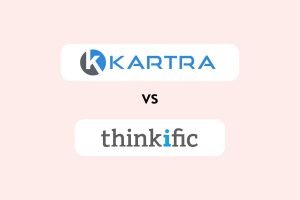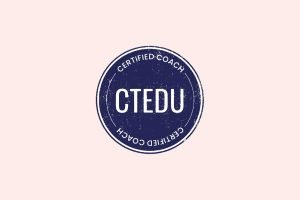Last updated on May 17, 2023
You’re an entrepreneur looking to make your mark in the business world.
You’ve got the passion, drive, and big ideas, but there’s just one thing holding you back:
You’re not sure if you’re better suited for a coaching or consulting role.
Do you want to be the guiding light that helps your clients find their own way? Or do you want to be the expert who provides solutions and advice based on your industry expertise?
It’s a tough call. And the choice you make can impact your business’s success.
But you’re not alone.
Many entrepreneurs grapple with this decision, wondering which path is the right fit for their unique skill set and goals.
In this article, we’ll delve into the world of coaching and consulting, and explore the technical differences between the two.
Let’s get started.
The #1 Difference Between Consulting and Coaching
The number one difference between coaching and consulting is the level of involvement.
Coaching is like having a personal trainer for your business. The coach is there to guide you, support you, and help you develop the skills you need to succeed.
The goal of coaching is to walk with you on the journey, rather than tell you what to do or provide specific solutions.
A coach helps you identify your strengths and weaknesses, creates a roadmap for success, and holds you accountable for achieving your goals. They don’t provide solutions or dictate what you should do.
Instead, they ask thought-provoking questions, help you discover your own answers, and provide guidance and feedback.
Consulting, on the other hand, is more like a doctor’s visit. You go to the doctor when you have a specific problem, and they provide a diagnosis and solution.
Consultants are experts in their field and provide advice based on their industry knowledge and experience.
They provide solutions and make recommendations based on what they believe is best for your business.
They have a more hands-on approach, and they’re more focused on delivering tangible results.

They analyze your business, identify areas for improvement, and provide solutions that are tailored to your specific needs. They work with you to develop a plan, and then they implement it and monitor the results.
So, which one is right for you?
It all depends on your goals and the strengths that you have. If you want to guide people and help them hone their skills, coaching may be the way to go.
But if you want to get straight into problem-solving, consulting might be the better option.
Either way, the key is to understand both to find the right fit for you and your business.
What Is a Business Coach?
A business coach helps entrepreneurs and business owners navigate the challenges of running a business and achieving their desired goals.
Coaching is like having a personal trainer for your business. The coach is there to guide you, support you, and help you develop the skills you need to succeed.
They’re like a trusted advisor or guide who can provide valuable insights and support along the way.
Now, what are the skills that a business coach needs to have in order to be effective?
Let’s break it down:
1. Active Listening
This skill is all about truly hearing what your client is saying, without interrupting or imposing your own ideas.
It involves asking open-ended questions and providing feedback to help your client explore their own thoughts and feelings.
Active listening creates a safe space for your client to open up and allows you to gain a deeper understanding of their unique situation.
2. Empathy
Empathy is the ability to understand and share the feelings of another person.
You need to be able to put yourself in your client’s shoes and see things from their perspective.
This helps them feel understood and supported, which can be crucial for building a strong coaching relationship.
3. Goal Setting and Planning
Goal setting and planning are critical skills for a coach to possess.
A coach helps their client identify their goals and develop a plan to achieve them.

They assist in breaking down large goals into smaller, more manageable tasks, creating a roadmap to success.
As a coach, you need to help your client stay accountable for their progress and adjust their plan as needed.
4. Communication Skills
Effective communication is essential for any kind of coaching, and business coaching is no exception.
You need to be able to communicate your ideas clearly and concisely. Business coaches must also adapt their communication style to match their client’s personalities and preferences.
For example, some clients may prefer a direct, no-nonsense approach, while others may prefer a more collaborative, supportive approach.
5. Avid Learner
A good coach never stops learning.
They stay up-to-date on industry trends, attend conferences and workshops, and seek feedback from their clients to continuously improve their skills and knowledge.
This ensures that they can provide their clients with the best possible guidance and support.
What Is a Consultant?
You’ve probably heard the term “consultant” thrown around, but what does it actually mean?
Companies often hire consultants when they’re facing a problem they can’t solve on their own, and they need someone with specific expertise to provide an answer.
Consulting…is more like a doctor’s visit. You go to the doctor when you have a specific problem, and they provide a diagnosis and solution.
But what skills does a consultant need to have to be effective? Let’s take a closer look:
1. Industry-Specific Knowledge
Consultants have their finger on the pulse of the latest trends, innovations, and best practices.
They know the ins and outs of the industry like the back of their hands, thanks to their extensive research and experience.
Their expertise is the secret that makes their recommendations accurate.
2. Analytical Thinking Skills
Consultants need to be able to sift through complex data and information to develop recommendations for their clients.
They have a sharp eye for detail and can quickly spot patterns and insights that others might miss.
Their critical thinking skills are on point, allowing them to process vast amounts of information and distill it into actionable recommendations.
3. Communication Skills
Consultants must be able to communicate complex ideas and recommendations clearly and effectively to their clients.
They could explain intricate business concepts to fifth-graders if they needed to.

Their verbal and written skills are top-notch, allowing them to convey their ideas clearly and effectively to clients.
Consultants must be able to convey technical information to their clients who may not have the same level of expertise in the subject matter.
No jargon or buzzwords can intimidate them.
4. Problem-solving skills
Consultants can identify the root causes of an issue and come up with creative and strategic solutions to address them.
They’re always one step ahead, anticipating potential obstacles and devising plans to overcome them.
This requires creativity, strategic thinking, and the ability to anticipate and plan for potential obstacles.
By leveraging their industry-specific knowledge and analytical skills, consultants can provide unique and innovative solutions that drive results for their clients.
5. Business expertise
Consultants must have a solid understanding of business fundamentals, such as finance, marketing, and operations, in order to provide effective recommendations to their clients.
They must also be able to understand and interpret financial statements and other relevant data to assess a company’s health and performance.
By combining their industry-specific knowledge with strong business judgment, consultants can provide comprehensive solutions that take into account the big picture of a client’s business.
10 Differences Between a Business Coach vs Consultant
When it comes to business coaching and consulting, the devil is in the details.
While both approaches aim to help businesses achieve their goals, they differ in several key aspects.
Let’s take a closer look:
1. Goal
A business coach focuses on guiding their client toward discovering their own solutions and developing their skills and abilities. They empower the client to make decisions and take ownership of their actions.
On the other hand, a consultant’s goal is to provide expert advice and recommendations based on their knowledge and experience.
2. Approach
Business coaching is typically a collaborative approach, where the coach facilitates the client’s self-discovery through active listening, powerful questioning, and feedback. The coach helps the client explore different perspectives, uncover insights, and develop action plans.
Consulting tends to be more of an expert-driven approach, where the consultant provides their professional opinion, expertise, and specific recommendations.
3. The Focus
Business coaching is often focused on the individual’s personal growth and development, as well as their overall well-being. It may involve exploring values, beliefs, emotions, and behaviors to support the client’s self-awareness and self-improvement.
Consulting is typically focused on solving specific business problems, such as improving processes, increasing efficiency, or optimizing performance.
4. Duration
Business coaching engagements are often long-term, spanning several months or even years, as the coach and client work together to achieve sustainable change and growth.
Consulting engagements are usually shorter in duration, ranging from a few weeks to a few months, depending on the specific project or issue being addressed.
5. Relationship
Business coaching often involves a more personal and ongoing relationship between the coach and the client. The coach builds rapport, trust, and confidentiality with the client, creating a safe and supportive environment for open and honest communication.

Consulting relationships tend to be more transactional, with a defined scope of work and a specific deliverable or outcome.
6. The Scope
Business coaching can cover a broad range of topics, including leadership development, communication skills, conflict resolution, work-life balance, and personal growth. It takes a holistic approach to support the client’s overall well-being and success.
On the other hand, consulting is typically focused on specific business areas, such as strategic planning, marketing, finance, or operations, and provides expert advice and solutions in those areas.
7. The Role
A business coach acts as a guide, facilitator, and supporter. They create a non-judgmental space for the client to explore their thoughts, feelings, and ideas. They help the client gain clarity, set goals, and develop strategies.
A consultant acts as a subject matter expert, providing specialized knowledge and skills to address specific business challenges or opportunities.
8. The Outcome
The outcome of business coaching often revolves around personal growth, increased self-awareness, improved leadership skills, enhanced decision-making abilities, and overall professional development.
The focus is on empowering the client to become more effective and fulfilled in their role.
Consulting focuses on achieving specific business outcomes, such as increased revenue, improved operational efficiency, or enhanced market positioning.
9. Process
Business coaching is like a quest for self-discovery, with the coach asking powerful questions, encouraging reflection, and helping the client uncover their own solutions. It’s like a thrilling puzzle to solve.
Consulting, on the other hand, is a strategic process, with the consultant providing expert insights, analysis, and solutions like a mastermind unraveling a complex problem.
10. Value
Coaching provides value through personal growth and development, while consulting provides value through expert advice and solutions.
To Coach or to Consult?
It’s clear that these two distinct roles have their unique strengths and approaches.
While coaching focuses on guiding and empowering clients, consulting involves providing expert advice and solutions based on specialized knowledge and experience.
Coaching is a dynamic and transformative process that helps individuals uncover their potential, set and achieve goals, and overcome challenges.
Consulting is more structured and results-oriented—relying on specialized knowledge and expertise to provide solutions to clients’ problems.
When it comes to choosing between coaching and consulting, it’s essential to consider your own personality, strengths, and career goals.
Are you a natural-born motivator who excels at guiding and empowering others? Or do you have a wealth of specialized knowledge and expertise in a particular field, with a talent for solving complex problems?
Regardless of which path you choose, one thing is for sure: you’ll be making a positive impact on people’s lives and businesses.
So go into the world and use your unique talents to help others succeed.

Max Tornow
Max Tornow is the founder ofFreedom Business Mentoring–a program that helps people start thriving coaching and consulting businesses and achieve both financial and time freedom. Check out Online Training Reviewer for reviews of Max’s program and many others.
















Be First to Comment